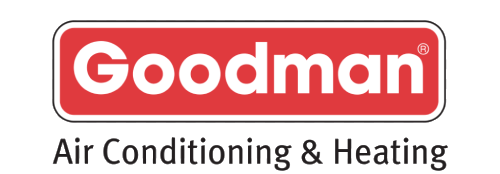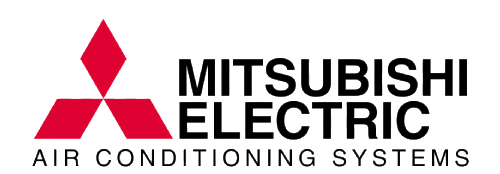Choosing the right air conditioner for your home can be daunting, especially with the myriad options available. Whether you’re considering a central air conditioning system or a window air conditioner, making an informed decision is crucial. In this comprehensive guide, we’ll walk you through the essential factors you need to consider, from size to energy efficiency, to help you choose the suitable AC unit for your home.
Determine What Size Air Conditioner You Need
Selecting an air conditioner with the appropriate size is critical. A unit that’s too small won’t effectively cool your home, leading to an uncomfortable living environment. On the other hand, an oversized unit will cycle on and off too frequently, wasting energy and increasing your electricity bills. If you’re unsure about the size, it may be best to consult with professionals for AC installation.
- Square Footage: Measure the square footage of the room or area you want to cool. This will give you a rough idea of your needed AC unit size.
- British Thermal Unit (BTU): Air conditioners are measured in BTUs, which indicate their cooling capacity. The larger the area, the higher the BTU rating you’ll need.
Additional Considerations
- Humidity Control: The right-sized air conditioning unit will also help maintain optimal humidity levels, enhancing overall comfort.
- Type of Unit: The size will significantly affect its efficiency and effectiveness if you’re considering a central air conditioner or a smaller air conditioning unit.
- Cool Air Distribution: A well-sized unit ensures even cool air distribution throughout your home, eliminating hot or cold spots.
- Energy Efficiency: A properly sized air conditioning unit operates more efficiently, saving you money on energy bills in the long run.
By considering these factors, you’ll be better equipped to choose an air conditioning unit that not only cools your home effectively but also operates efficiently.
Types of Air Conditioning Systems
There are various air conditioning systems to choose from, each with its pros and cons. Here are some of the most common types:
- Central Air Conditioning: Ideal for cooling multiple rooms or a large area. Requires ductwork and an air handler.
- Window Air Conditioner: Suitable for cooling a single room. Easy to install and relatively inexpensive.
- Ductless Air Conditioners: Also known as mini-splits, these are perfect for homes without ductwork. They offer more flexibility in terms of where they can be installed.
When choosing an air conditioner, it’s essential to consider the specific needs of your space, the layout of your home, and your budget. Consumer reports and expert reviews can be invaluable resources, offering insights into the performance and reliability of different systems. If you’re looking to cool a specific room or area in your home, room air conditioners like window units or portable air conditioners may be more appropriate.
The efficiency of an air conditioner often correlates with its type. For instance, central air conditioning systems are generally more energy-efficient for cooling large spaces, while room air conditioners are usually more cost-effective for smaller areas. Ductless air conditioners, also known as mini-splits, offer a lot of flexibility regarding installation locations. They can be an excellent option for homes without existing ductwork or for rooms that require individual temperature control.
Energy Efficiency: What to Look For
Energy efficiency is a crucial factor to consider when you’re buying a new air conditioner. Not only does it impact your utility bills, but it also affects your carbon footprint.
- SEER Rating: The Seasonal Energy Efficiency Ratio (SEER) measures how efficiently the unit operates over a cooling season. The higher the SEER rating, the more energy-efficient the unit is.
- Energy Star Certification: Look for units with the Energy Star label, as they meet the energy efficiency guidelines set by the U.S. Environmental Protection Agency.
When considering energy efficiency, it’s not just about the immediate savings on your utility bills; it’s also about long-term sustainability. If you choose a central air conditioner, you’ll want to pay close attention to the SEER rating and any Energy Star certifications. These indicators can help you determine your home’s right size and air conditioner size, ensuring the AC system operates at peak efficiency.
The best air conditioner for you will balance initial costs and ongoing operational expenses. For those contemplating a new central AC system, it’s crucial to consider how well it will distribute air throughout your home. Proper sizing is essential; you’ll need to determine the size of the unit you need based on factors like square footage and insulation quality. This will help you avoid the pitfalls of choosing an underpowered or overly robust system, which can lead to inefficiencies and increased costs.
Air Conditioner Features to Consider
Modern air conditioners have various features designed to improve performance and enhance convenience.
- Smart Thermostats: You can control the temperature remotely via a smartphone app.
- Air Filters: Some units have washable air filters that help improve indoor air quality.
- Variable Speed Fans: These adjust the speed based on the cooling needs, making the unit more energy-efficient.
The array of air conditioner features can be impressive and overwhelming in today’s market. Beyond the basics, choosing the right size and AC system that aligns with your specific needs is essential. Features like smart thermostats offer the convenience of adjusting the air to the right temperature, even when you’re not home, directly from your smartphone. This level of control enhances comfort and contributes to energy efficiency, making it a win-win feature to consider.
Air Conditioner Maintenance
Unlock the full potential of your air conditioning system with regular maintenance. Proper care ensures optimal performance and extends your unit’s lifespan, giving you more bang for your buck.
- Filter Replacement: Regularly check and replace the air filters to ensure optimal performance. A clogged filter can make even the best air conditioner work harder than it needs to.
- Professional Check-ups: A professional should inspect your unit at least once a year, especially before the cooling season begins. This can help identify any issues before they become costly problems.
- Size Checks: If you’ve noticed that your air conditioner seems less effective, it may be worth reviewing whether the unit is the right size for your space. An air conditioner that’s too small will struggle to cool your home efficiently.
- System Calibration: Your air conditioner’s settings and controls should be calibrated regularly to ensure accuracy. This is particularly important for programmable thermostats and smart systems.
- Cleaning and Lubrication: Choosing a maintenance plan that includes cleaning and lubricating moving parts to reduce wear and tear is important.
By investing in regular maintenance, you’re preserving your air conditioner and enhancing your home’s overall comfort and efficiency.
How to Choose The Best AC Unit? Summary
Choosing the right air conditioner for your home doesn’t have to be complicated. It’s essential to consider the following factors:
- Unit size: The right air conditioner size is crucial for effective cooling and energy efficiency. Measure your space and consult BTU ratings to make an informed decision.
- Types of Systems: Whether it’s a central air conditioner, window unit, or ductless system, choose the one that aligns with your home’s layout and your specific cooling needs.
- Energy Efficiency: Pay attention to SEER ratings and Energy Star certifications. A more energy-efficient unit will save you money in the long run and reduce your carbon footprint.
- Feature-Rich: Modern air conditioners offer smart features like programmable thermostats and variable-speed fans for enhanced comfort and efficiency.
- Regular Maintenance: Keep your unit running at peak performance with regular filter replacements, professional check-ups, and system calibrations.
Considering these key features, you’ll be well-equipped to make an informed decision that meets your cooling needs and enhances your home’s overall comfort and efficiency.










